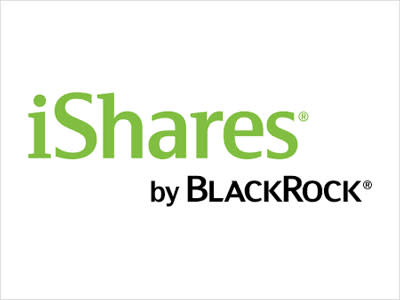BlackRock has been managing index portfolios since 1971
This ETF provides access to a range of investment grade corporate bonds
The ETF’s low charges could help it track the Markit iBoxx GBP Liquid Corporates Large Cap Index closely
How it fits in a portfolio
An ETF is a basket of investments that often includes shares or bonds. They tend to track the performance of an index such as the Markit iBoxx GBP Liquid Corporates Large Cap Index and trade on stock exchanges, like shares. This means their price fluctuates throughout the day.
The iShares Core Sterling Corporate Bond ETF provides diverse exposure to investment grade bonds issued by companies in Sterling. The index includes the most liquid of these bonds, which relates to how easily they can be bought and sold in the market.
An ETF is one of the simplest ways to invest and this ETF could be a low-cost way to add exposure to sterling corporate bonds to an investment portfolio. It could also diversify a portfolio focused on shares or other bonds from regions like the US or Europe.
Manager
The ETF is managed by the BlackRock EMEA Index Fixed Income Portfolio Management Team, led by John Hutson. Hutson has been at the firm for 12 years and has over 20 years of experience in the industry. He previously had responsibility for Credit Index Investments within the team.
While Hutson leads the team, each ETF at BlackRock has a primary and secondary manager, though in practice a broader team helps to manage each fund. Divya Manek is the Head of Investment Grade Credit and Emerging Market Debt at BlackRock and the lead portfolio manager on this ETF.
Within the team, portfolio managers rotate their responsibilities, which gives them experience across different regions like the UK, the US and Europe. This ensures continuity in the way the ETFs are managed, even if there are team changes.
BlackRock also has other teams that trade shares and bonds based across the world. The teams function in different time zones, which means they have access to timely information, and can provide input on market trends and corporate actions. Their global approach helps drive efficient management of their funds, while providing simple and effective tracking options for investors.
Process
This ETF aims to track the performance of the Markit iBoxx GBP Liquid Corporates Large Cap Index. It does this by investing in almost every bond in the benchmark, but not all. This is known as partial replication, which could help the ETF track the index closely without incurring the cost of holding every bond.
The ETF invests in around 500 corporate bonds across a range of sectors like industrials, utilities and financial companies. While the ETF is focused on investment grade bonds, meaning they have a credit rating of at least BBB, it can hold some high yield bonds at times, which increases risk.
In any ETF, factors like taxes, dealing commissions and spreads, and the cost of running the ETF all drag on performance. To reduce the tracking difference between the ETF and the index, BlackRock cross trades bonds internally across all its own funds. This helps to reduce transaction costs.
The ETF can lend some of its investments to others in exchange for a fee in a process known as stock lending. This offsets some of the costs involved with running the ETF. Since BlackRock’s lending program started in 1981, only three borrowers with active loans have defaulted. In each case, BlackRock was able to repurchase every security out on loan with collateral on hand and without any losses to their clients. Even so, stock lending is a higher risk approach.
As this ETF is listed offshore investors are not usually entitled to compensation from the UK Financial Services Compensation Scheme.
Culture
BlackRock is currently the largest asset manager in the world, running around $10.6trn of assets globally as of June 2024. The company was founded by eight partners including current CEO Larry Fink and is known for both active and passive strategies. Employees at BlackRock are encouraged to hold shares in the company so that they are engaged with helping the company perform well and grow. The iShares brand represents BlackRock's family of index tracking and exchange-traded funds.
As the world's largest asset manager, and with lots of resource and knowledge under its belt, BlackRock benefits from unique access to the marketplace, which can help reduce trading costs. BlackRock is also a pioneer in the passive investment space and has a track record of innovation in this part of the investment market.
The team running this ETF also works closely with various equity and risk departments across the business. We believe this adds good support and challenge on how to run the ETF effectively.
ESG Integration
BlackRock was an early signatory to the Principles for Responsible Investment (PRI) and has offered Environmental, Social and Governance (ESG)-focused funds for several years, including through its iShares range of passive products. However, it only made a company-wide commitment to ESG in January 2020. Following that announcement, the company promised to expand its range of ESG-focused ETFs, screen some thermal coal companies out from its actively managed funds and require all fund managers to consider ESG risks.
BlackRock’s Investment Stewardship Team aims to vote at 100% of meetings where it has the authority to do so. The Investment Stewardship team engages with companies, in conjunction with fund managers, and the results of proxy votes can be found on the BlackRock website’s ‘proxy voting search’ function. The firm also outlines its work on voting and engagement in annual and quarterly Stewardship reports.
The firm has courted controversy in recent years for failing to put its significant weight behind shareholder resolutions aimed at tackling climate change. It responded by committing to be more transparent on its voting activity and providing rationales for key votes. In 2024, Blackrock announced that its US arm would step back from the Climate Action 100+ collective engagement initiative, citing legal considerations, although it suggested its international arm would remain a member.
The iShares Core Sterling Corporate Bond ETF is designed to track an index that doesn’t specifically integrate ESG analysis or exclude bonds issued by companies in industries such as oil and gas or alcohol.
Cost
The ETF currently has an ongoing annual fund charge of 0.20%. Ensuring an ETF has a low charge is an important part of tracking the underlying index closely.
The annual charge to hold ETFs in the HL ISA or SIPP is 0.45% (capped at £45 p.a. in the ISA and £200 in the SIPP). There are no charges from HL to hold ETFs within the HL Fund and Share Account or HL Junior ISA. As ETFs trade like shares, both a buy and sell instruction will be subject to the HL share dealing charges.
Performance
The iShares Core Sterling Corporate Bond ETF has done a good job of tracking its benchmark, the Markit iBoxx GBP Liquid Corporates Large Cap Index, since launch. Over the last 10 years the ETF has returned 24.86%*. As is typical of ETFs, it’s fallen behind the benchmark over the long term because of the costs involved. However, the tools used by the managers have helped to keep performance as close to the index as possible.
Over the past 12 months, the ETF has tracked the index closely, gaining 9.88%. Remember, past performance isn’t a guide to future returns.
Bond markets have been volatile during the year. There was a strong rally at the end of 2023 led by the expectation that interest rate cuts were on the horizon. Bonds however lost some value at the beginning of 2024 as most major economies held off on lowering rates and expectations were pushed back.
Bonds picked back up as interest rates were finally cut and the European Central Bank was among the first major central banks to lower interest rates in early June. They were followed by the Bank of England in August, who cut rates from 5.25% to 5%, after holding rates at a 16 year high for a full year. The US Federal Reserve also lowered rates in September, for the first time in four years, but went in with a bigger cut of 0.5%.
Bond yields remain high compared to levels seen over the last decade. At the end of August, the ETF’s yield was 4.46%. Yields aren’t guaranteed and shouldn’t be considered a reliable indicator of future income.
Given BlackRock's size, experience and expertise running ETFs, we expect the ETF to continue to track the index well in future, though there are no guarantees on how it will perform.
Annual percentage growth
Aug 19 – Aug 20 | Aug 20 – Aug 21 | Aug 21 – Aug 22 | Aug 22 – Aug 23 | Aug 23 – Aug 24 | |
|---|---|---|---|---|---|
iShares Core Sterling Corporate Bond ETF | 3.94% | 2.16% | -18.67% | -1.48% | 9.88% |


